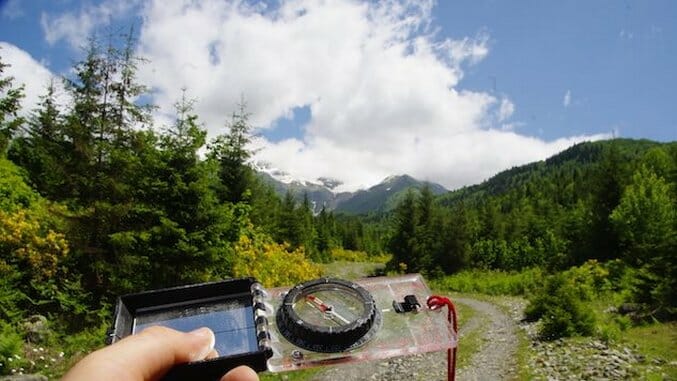
What would you push yourself to do if you knew you had a safety net? In today’s tech-centric world, a safety net doesn’t have to be an actual piece of mesh fabric—your phone can provide you with reassurance when you embark on an otherwise risky activity. If something goes wrong, you can always call for help, right?
Well, maybe not.
Trouble arises when our technology fails us. The number of accidents and deaths caused by overconfident smartphone-carrying hikers is proof enough that our devices can give us a false sense of security, no matter how reliable they seem to be in the real world.
Navigation Made Easy—or So We Think
One major convenience of a smartphone is that it has map apps that help you plan your route from point A to point B with ease. In fact, in some cases, smartphones can even be better than dedicated GPS devices. Smartphones are frequently and automatically updated, and they are always with you, which makes them more convenient.
This is very useful when driving or walking around town, but it can also be helpful when participating in outdoor activities. Rather than bringing along a paper map or sitting down to figure out a route beforehand, hikers can now slip their smartphones in their pockets, follow a satellite trail map and go without much prep.
But there’s one problem when it comes to depending on your smartphone while in the middle of the great outdoors: Your phone might not work. Whether you lose service or your battery dies, you lose access to navigation as soon as your phone stops functioning. Without knowledge of where you’re going or what you’re doing, this could be extremely dangerous.
Good, old-fashioned preparation for outdoor pursuits can help assuage this. And, while it’s always advisable to have your phone along for the ride, it shouldn’t be the only resource you have with you.
The Overconfidence Factor
It’s great to get out of your comfort zone every once in a while, but smartphones can also make you feel overly confident in doing so. A 2012 study found that those who identified as “risk-takers” were more likely to try something even more dangerous if they had a smartphone on hand.
In short, our phones give us a false sense of security when we’re out and about. After all, if something bad happens, we can just pull up a map to find an exit or call emergency services for a ride home or to the hospital. But this attitude has some seriously negative consequences, too.
Several hikers have gone missing or faced worse fates because their phones lost signal or ran out of battery. In 2015, a California couple went hiking and soon found the trail they chose to be much more difficult than they initially intended. Saylor Guilliams fractured her leg when jumping from one rock to another and neither she nor her boyfriend, Brenden Vega, could call for help—their phones were dead.
Vega left to find help, and he was never seen alive again. It’s suspected that he fell from a rock and hurt himself, too. He was found days after Guilliams, who was lucky enough to be seen by a trio of hikers who had a charged cell phone. They called for help, and she was taken to a hospital in time to save her. Her story isn’t unique, either—more and more people are hiking, and more and more are putting themselves in danger by arriving with only a smartphone and little other preparation.
How Do We Fix This?
Even in our outdoor pursuits, our addiction to technology rears its head. But we can do better to reduce our dependency, inform ourselves and go forward much more safely into the wilderness and other new places where we might rely on a phone for information, directions, etc.
As for those looking to expand their horizons into the great outdoors, the best first step to take is to learn how to use a paper map and compass. Even if you do bring along your phone—and even if it works at all points on the trail—you have a back-up just in case. It also wouldn’t be a bad idea to use your smartphone to do a bit of pre-hike research into trail safety tips, backpack-packing tips, etc.
Your phone is meant to make your life easier, and it certainly does. But it’s always important to consider what happens if you lose that safety net and come up with a plan B for when your device is out of service—it could literally save your life.
Photo: Martin Lopatka, CC-BY
Anum Yoon is Paste’s Unplugged columnist and a Philly-based blogger who founded Current On Currency.